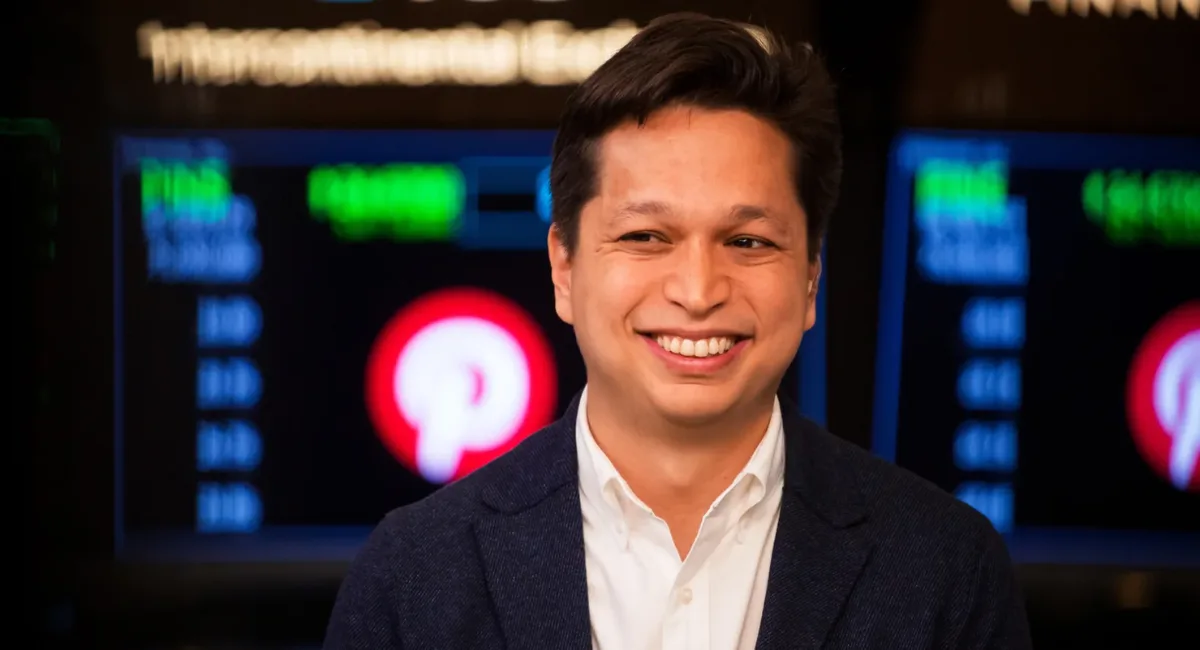Introduction: Who Is Ben Silbermann?
When we talk about tech innovators who quietly changed how millions of people use the internet, Ben Silbermann stands in a league of his own. As the co-founder and former CEO of Pinterest, he built one of the most influential visual discovery platforms of the 21st century a digital space where ideas, creativity, and commerce meet.
Unlike many Silicon Valley founders who thrive on publicity, Silbermann is known for his low-profile leadership and calm, thoughtful approach to innovation. This article explores his biography, achievements, leadership lessons, and the lasting impact of Pinterest on modern digital culture.
Early Life and Education
Ben Silbermann was born on July 14, 1982, in Des Moines, Iowa, to ophthalmologist parents, Jane Wang and Neil Silbermann. Growing up in a household that valued learning and precision, Ben developed an early fascination with collecting and organizing things from insects to stamps.
This childhood curiosity for collecting, categorizing, and curating would one day inspire the very foundation of Pinterest. He once mentioned that the idea for Pinterest came from “the joy of collecting things that mean something to you.”
Silbermann attended Roosevelt High School and later the Central Academy for gifted students. In 1998, he joined the Research Science Institute at MIT, before studying Political Science at Yale University, where he graduated in 2003.
Early Career: From Google Employee to Aspiring Founder
Before becoming an entrepreneur, Ben Silbermann began his professional career at Google, where he worked in the online advertising division. Although the job provided valuable exposure to internet products and large-scale systems, Silbermann often felt creatively limited.
He wanted to build something people truly loved using, not just analyze ads. This realization became the turning point in his career.
After leaving Google, he teamed up with a college friend, Paul Sciarra, to start a mobile app called Tote, designed to help users shop from online catalogs. However, the app struggled to gain traction due to the limitations of mobile commerce in 2009.
But failure wasn’t the end it was the beginning of something bigger.
The Birth of Pinterest
1. The Spark of Inspiration
While working on Tote, Silbermann noticed that users weren’t necessarily buying items they were saving and “collecting” them. That insight triggered a powerful idea: what if there were a digital space where people could collect and organize the things they loved, just like pinning objects on a corkboard?
2. Founding Team
In 2009, Ben Silbermann, Paul Sciarra, and designer Evan Sharp founded Pinterest in Palo Alto, California. They envisioned it as a visual bookmarking platform where users could “pin” images they found inspiring recipes, fashion, décor, travel ideas, and more.
3. The Launch
Pinterest launched its beta version in March 2010. Growth was slow at first only a few thousand users in the first few months but Silbermann remained committed. He personally emailed early users, collected feedback, and even shared his phone number for suggestions.
4. The Breakthrough
By 2011, Pinterest began gaining massive traction through word of mouth and the launch of its iPhone app. That year, Time Magazine named Pinterest one of the “50 Best Websites,” and traffic skyrocketed.
By 2012, Pinterest became one of the fastest-growing social networks in history, reaching over 10 million users faster than any previous platform.
Pinterest’s Rise to Global Fame
Visual Discovery Platform
Unlike Facebook or Twitter, Pinterest wasn’t built for sharing life updates it was built for visual inspiration. Users came not to talk, but to discover. This unique positioning helped Pinterest dominate a niche market focused on creativity and personal interests.
Innovative Features
- Pinboards: Virtual boards where users collect and organize ideas.
- Search & Discovery: Powerful visual algorithms that recommend related pins.
- Shopping Integration: “Buyable Pins” and later “Shop the Look” enabled e-commerce directly within the platform.
- Idea Pins: Short video pins allowing creators to share tutorials and stories.
The IPO and Billion-Dollar Valuation
After nearly a decade of growth, Pinterest went public on April 18, 2019, debuting on the New York Stock Exchange under the ticker symbol PINS. The company’s valuation reached nearly $12.7 billion, making Silbermann one of the most successful tech founders of his generation.
Ben Silbermann’s Leadership Philosophy
Ben Silbermann’s leadership style differs sharply from the typical Silicon Valley archetype. Here are the principles that defined his approach:
1. Quiet Leadership
Silbermann isn’t known for dramatic speeches or aggressive public appearances. His calm, thoughtful demeanor promotes a culture of listening and humility. He believes a leader’s role is to create clarity and empower others to innovate.
2. Product Over Publicity
In a world obsessed with viral growth, Silbermann’s mantra has always been “product first.” He believes in building something valuable and letting word of mouth do the rest. Pinterest’s organic growth is proof that authenticity beats hype.
3. Long-Term Vision
Silbermann focused on sustainable growth, not short-term wins. His slow-and-steady strategy helped Pinterest evolve into a trusted global brand.
4. Empathy for Users
He once said, “Every product decision should begin with the user’s experience in mind.” This empathy-driven approach made Pinterest beloved by users seeking a positive, creative space in contrast to the negativity often found on other social media platforms.
Challenges Faced by Ben Silbermann and Pinterest
1. Monetization Hurdles
Turning Pinterest’s massive user base into consistent revenue wasn’t easy. The company experimented with ads, promoted pins, and shopping integrations to balance monetization without compromising user experience.
2. Diversity and Workplace Culture
In 2020, Pinterest faced criticism from former employees regarding diversity and inclusion issues. Silbermann publicly acknowledged the challenges, took responsibility, and announced internal reforms and funding to improve equity and transparency.
3. Competition in Visual Content
As competitors like Instagram, TikTok, and Google Images enhanced their visual search and shopping capabilities, Pinterest had to innovate rapidly to stay relevant. Features like Idea Pins and Pinterest Lens helped maintain its edge.
Stepping Down as CEO
In June 2022, Ben Silbermann announced he was stepping down as Pinterest’s CEO to become Executive Chairman, handing over leadership to Bill Ready, former President of Google Commerce.
Silbermann stated his goal was to focus on Pinterest’s long-term vision and values, while Ready led the company’s next phase of innovation and monetization.
This transition marked a new chapter one that allowed Silbermann to focus on broader goals, including philanthropy and mentorship.
Philanthropy and Giving Back
In 2022, Ben Silbermann and his wife Divya signed The Giving Pledge, promising to donate more than half their wealth to charitable causes.
They established the Tambourine Foundation, which supports projects in education, health, and community development. Silbermann believes that success is meaningful only when it contributes to making the world better
Impact of Ben Silbermann on the Tech Industry
Ben Silbermann’s influence extends beyond Pinterest. His approach to technology and business offers valuable lessons:
1. Human-Centered Design
Pinterest redefined how people discover and organize ideas online. It proved that emotional connection and design aesthetics matter as much as technical innovation.
2. Inspiration Economy
Pinterest introduced the concept of an “inspiration engine,” motivating other companies to focus on helping users discover aspirations rather than just consume content.
3. Ethical Tech
Silbermann emphasized creating a positive and responsible digital space, setting an example for other social platforms struggling with toxicity and misinformation.
Key Lessons from Ben Silbermann for Entrepreneurs
1. Start with Passion
Pinterest began from Silbermann’s childhood love for collecting. The best ideas often come from personal passions.
2. Listen to Users
Instead of chasing trends, Silbermann spent years perfecting Pinterest based on real user feedback. Listening is a competitive advantage.
3. Patience Pays Off
Success doesn’t happen overnight. Pinterest took years to build momentum, proving that persistence and product quality matter more than speed.
4. Build a Positive Product Culture
Pinterest’s focus on creativity and kindness reflects Silbermann’s values. Entrepreneurs should aim to create products that uplift and empower users.
5. Define Success Beyond Profit
Through the Giving Pledge and Tambourine Foundation, Silbermann reminds us that true success includes giving back to society.
Pinterest in 2025: Continuing the Legacy
Today, Pinterest boasts over 550 million monthly active users globally and remains one of the most influential visual search engines. Under new leadership, the platform is evolving into a visual shopping and discovery powerhouse, blending AI, personalization, and e-commerce.
Ben Silbermann continues to shape Pinterest’s direction as Executive Chairman and remains an inspiration for founders who believe in building meaningful, value-driven technology
Interesting Facts About Ben Silbermann
- He was initially rejected by many venture capitalists before Pinterest took off.
- He hand-emailed Pinterest’s first 10,000 users.
- He prefers reading and quiet reflection over public speaking.
- He believes in “creating technology that brings joy, not addiction.”
- His wife, Divya Bhardwaj Silbermann, is also actively involved in philanthropy.
Conclusion: The Legacy of Ben Silbermann
Ben Silbermann’s story is not just about founding Pinterest it’s about building something meaningful with patience, empathy, and purpose. From humble beginnings in Iowa to becoming a global tech visionary, he reminds us that innovation doesn’t always come from noise sometimes, it’s born from quiet observation and steady perseverance.
In a world obsessed with instant results, Silbermann’s journey teaches entrepreneurs to focus on authentic connections, ethical growth, and lasting impact.
Pinterest continues to thrive as a space of creativity and inspiration and behind it all stands the visionary mind of Ben Silbermann, a true pioneer of the digital inspiration age.



